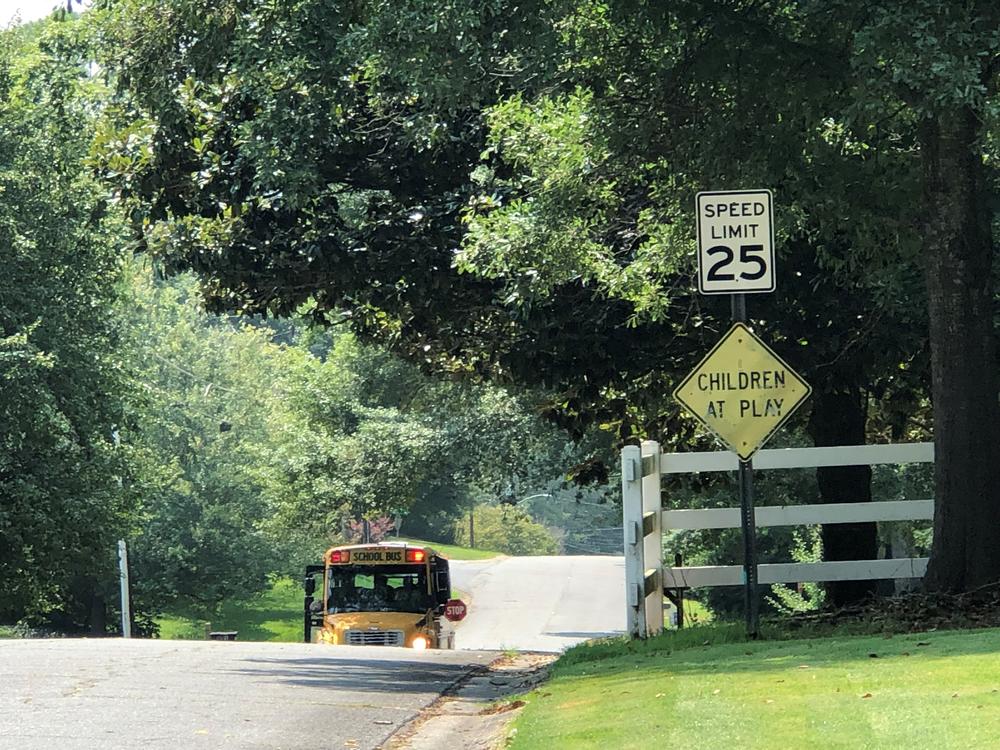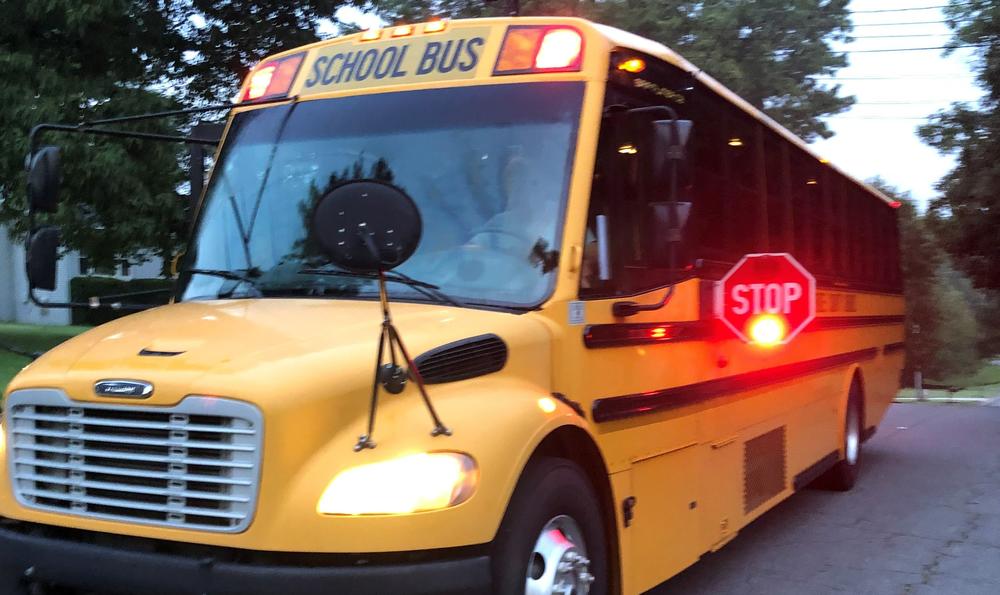
Caption
As many kids return to the classroom this week, experts are urging those 12 and over to be vaccinated against COVID-19 and those who are younger to wear masks.
Credit: Ellen Eldridge / GPB News
|Updated: August 2, 2021 6:39 PM
As many kids return to the classroom this week, experts are urging those 12 and over to be vaccinated against COVID-19 and those who are younger to wear masks. GPB’s Ellen Eldridge reports.

As many kids return to the classroom this week, experts are urging those 12 and over to be vaccinated against COVID-19 and those who are younger to wear masks.
Infectious disease experts say Georgia leaders have the data needed to make safe decisions regarding the delta variant and rising COVID-19 cases — but many aren't heeding it.
Over the last week of July, cases of COVID-19 increased dramatically and hospitalizations rose 50%, said Dr. Jodie Guest, professor and vice chair of the Department of Epidemiology, Rollins School of Public Health at Emory University.
Fully vaccinated people can get infected, carry and transmit the delta variant of the coronavirus, but the vast majority of hospitalized patients — between 97 and 99% — are not vaccinated, Guest said.
While so-called breakthrough cases of vaccinated people contracting COVID-19 are real, Guest said, they are also rare.
"More importantly, there's a difference between having a positive case and having enough illness that you need to go into the hospital," Guest said. "And the vaccines are continuing to do an exceptional job at keeping us from getting severe COVID-19 (and) needing to be in the hospital, taking one of those precious beds away from someone else who might need it, and then being at increased risk of dying."
Children under 12 years of age are not eligible for any COVID-19 vaccine. That means communities rely on local school board and superintendent decisions regarding the health of their elementary school children.
Schools across Georgia all have different rules when it comes to masks and social distancing, which is why experts such as Amber Schmidtke, a microbiologist who analyzes COVID-19 data in Georgia, say ignoring data about the delta variant is dangerous.
Parents and leaders in education who felt comforted by the apparent fact that the coronavirus did not affect children as much as older adults may have been lulled into a state of complacency, Schmidtke said.
"We've had this belief that the disease is minor at best for kids, but, in a lot of ways, that's because we did a lot of work in the last year to protect kids," she said. "And, in some ways, we're getting rid of those things."
Georgia's positivity rate for testing has recently risen well above the 5% threshold, which is the number epidemiologists use to understand how much infection there is across the state. We're at 11%, Guest said Monday.
In other parts of the country, pediatric intensive care units are surging with patients, Schmidtke said, and Georgia can learn from the experiences of neighboring states like Mississippi, Alabama, Missouri and other places.
The children's hospitals in these states are sick enough to require ventilation, she said, and parents are surprised at learning their kids need ventilators.

A well-known COVID-19 data expert says ignoring best practice guidelines as students return to school is not too different than allowing a drunken person to drive a school bus.
"So when this starts to happen in a bigger way in Georgia and kids who were previously healthy are on ventilators, I don’t want school superintendents to claim that there was no way this could have been predicted," Schmidtke said. "We have plenty of warning that the situation in 2021 is more dangerous than a year ago for children. Willingly choosing to endanger children by not doing the bare minimum of disease control and prevention should be treated the same way as knowingly allowing someone drunk to drive a school bus and organizations that do so should be held to account."
Many parents say they have been surprised by just how much care their children need, which Schmidtke said scares her.
Guest estimates that COVID-19 vaccines for those under age 12 might be available in roughly three to four months, she said, because researchers want to ensure the correct dose is safe first and effective second.
"I think that the really important thing to know is that we all need to keep each other safe and we all need to make sure we're not giving the virus more room to continually mutate," Guest said.